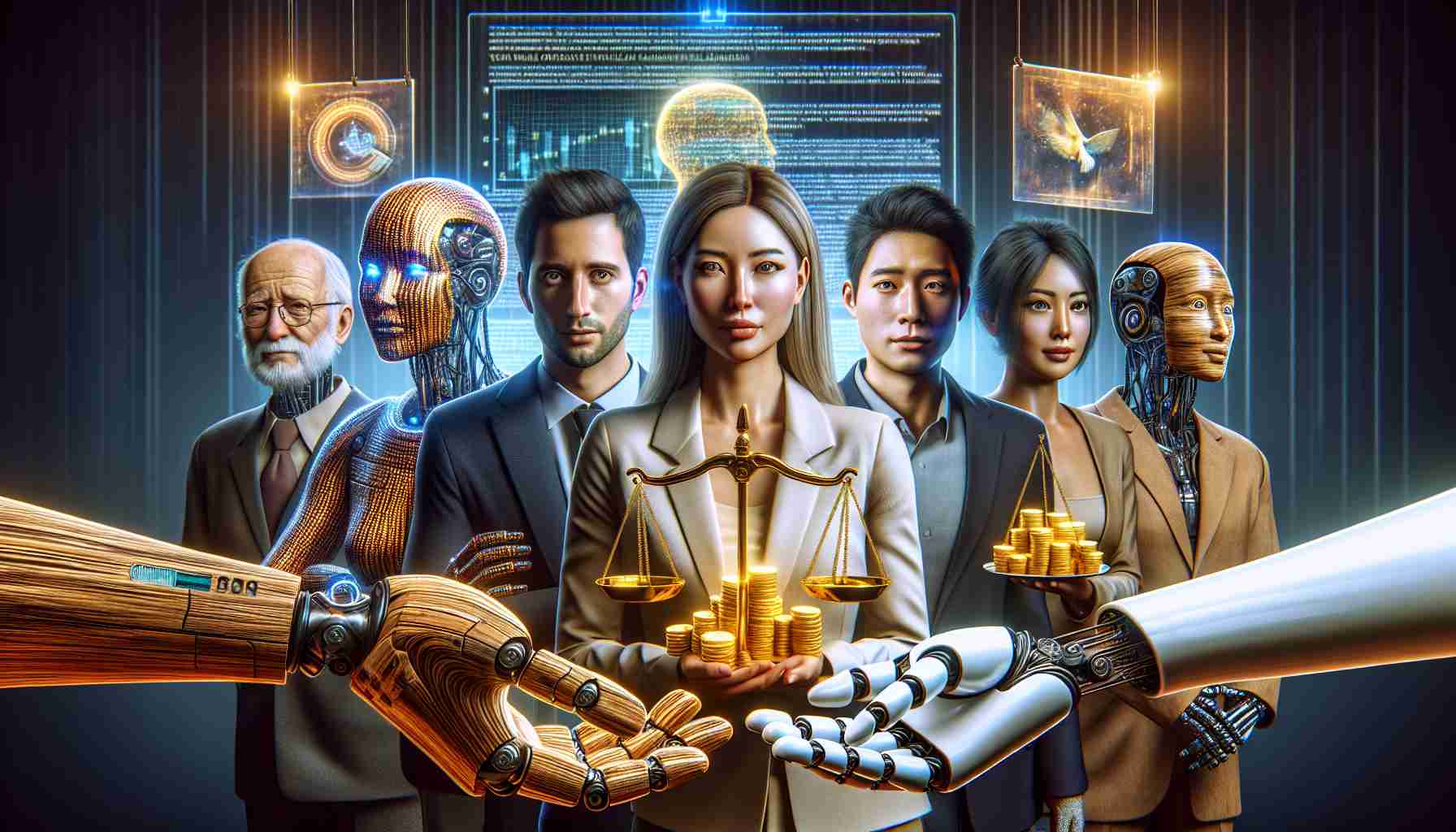A significant stir is brewing among authors after a leading book publisher proposed compensation for using their works to train artificial intelligence. Daniel Kibblesmith, an Emmy-nominated writer known for his contributions to “The Late Show with Stephen Colbert,” recently shared a controversial offer from HarperCollins. Offered $2,500 to let his children’s book, Santa’s Husband, be used in AI training for an undisclosed tech giant, Kibblesmith expressed strong disapproval and rejected the proposal.
This offer was accompanied by acknowledgments of AI-related controversies, and Kibblesmith remarked he was not surprised but disappointed by the whole situation. He noted this was the first instance where he was asked for consent, highlighting the difficulties freelance creators face in standing by their principles.
Echoing concerns from the music industry’s experience with file-sharing, Kibblesmith warned against the potential degradation of the literature landscape. He pointed out that adapting to an on-demand, freely accessible model could devastate the industry beyond repair.
HarperCollins stated a deal exists to utilize selected nonfiction works for AI training, leaving questions unanswered regarding its applicability to fiction writers like Kibblesmith. While some authors, including Elisabeth de Mariaffi, find the proposal discouraging and manipulative, others like Kenneth Oppel recognize the financial allure, despite the lack of transparency.
As AI technology marches forward, the literary community is divided between ethical stands and economic temptation, facing a seemingly inevitable transformation of their industry.
Authors vs. AI: A New Chapter in the Battle Over Intellectual Property
The advancement of artificial intelligence has brought about significant changes in various industries, and now it has taken a complex turn in the literary world. Authors and book publishers find themselves at the crossroads of innovation and intellectual property rights as AI demands access to their creative works. The offer by HarperCollins to compensate authors for using their books to train AI models highlights both exciting and concerning trends affecting humanity and technology.
Interesting Facts and Controversies
In an era where AI’s capabilities are expanding at an unprecedented rate, the use of literature to train AI models presents unique opportunities and challenges. AI can analyze vast amounts of text data to improve natural language processing, enabling more enriched communication tools and systems. However, at what cost? The controversy centers on the ethical implications of using creative works, which encapsulate personal stories and intellectual labor, to fuel AI without adequate recognition or compensation to the original creators.
The Advantages and Disadvantages
Advantages:
1. Enhanced AI Development: By utilizing diverse literary works, AI systems can improve understanding and generate more sophisticated text and conversational interactions.
2. Financial Incentives for Authors: While debated, financial offers from publishers and tech companies could provide additional revenue streams for authors in a digital age.
Disadvantages:
1. Intellectual Property Concerns: Authors like Daniel Kibblesmith express discontent over the lack of consent and transparency, fearing the dilution of their creative rights.
2. Industry Impact: Parallels are drawn to the music industry’s struggle with file-sharing, suggesting a risk of devaluing literature if content becomes widely and freely accessible.
Key Questions Answered
How does AI training impact authors?
The training of AI models using literary content can potentially undermine authors’ incomes by enabling AI systems that generate text, reducing demand for human authorship. Publishers must engage more collaborative and transparent compensation models to ensure authors’ livelihoods are protected.
Is there a middle ground?
The challenge lies in striking a balance between technological progression and respecting intellectual property. Some propose the adoption of licensure agreements and clear royalties that align with how music streaming transformed artist compensation.
Suggested related links:
– For insights into AI and its evolving role in society, visit IBM.
– To explore more about digital rights and content ownership, check out Electronic Frontier Foundation.
As AI technology continues its relentless march forward, it forces industries to rethink conventional practices. The literary community must navigate this transformation while safeguarding the core of what makes creative work valuable – its originality and human touch. How this unfolding narrative is addressed will set precedents for future interactions between technology and creativity.
